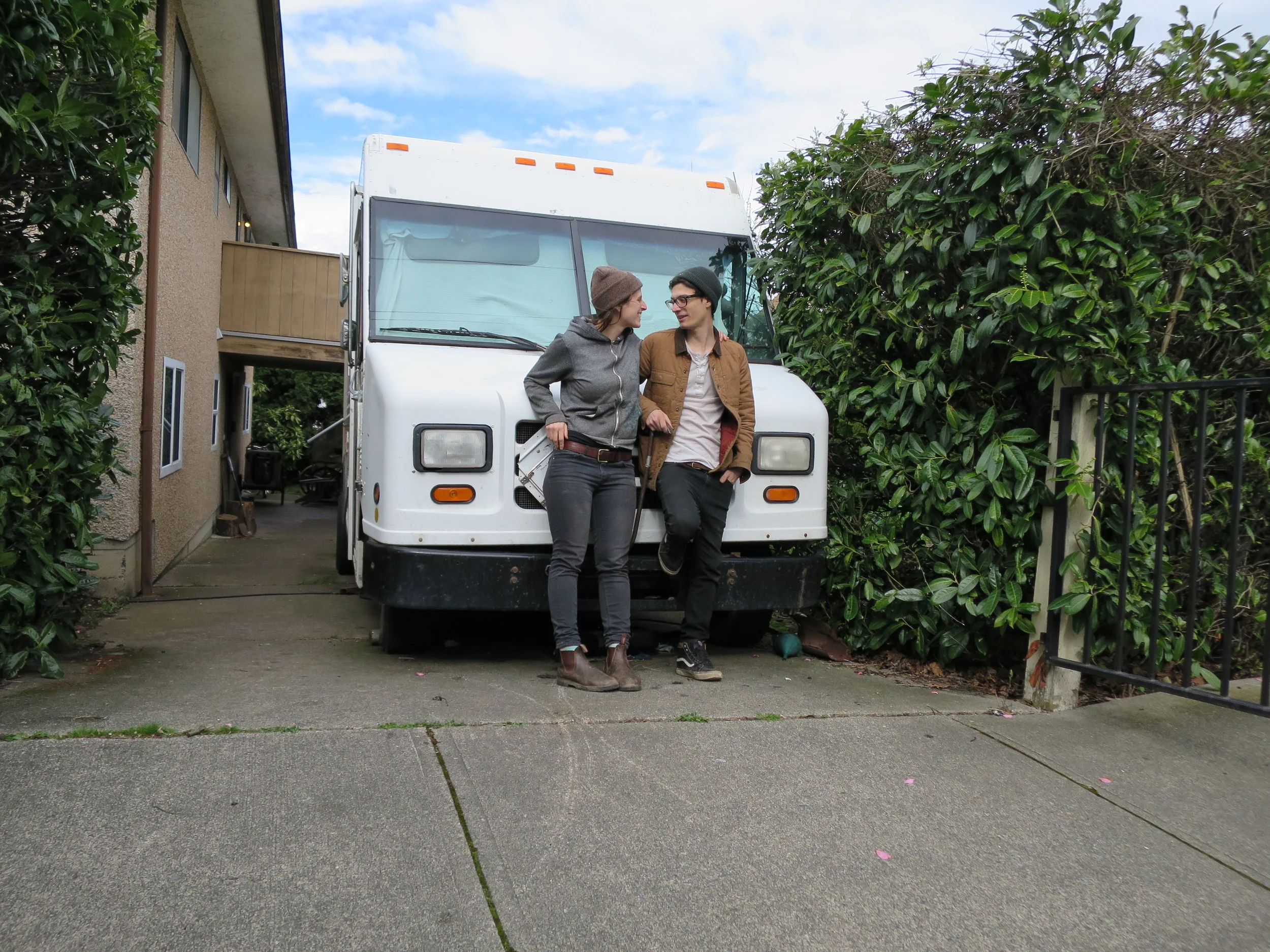Many people go into nature and take it for granted. But there are some people who play in the woods, using traditional methods to forage so that they can be more connected to nature and its wild spaces.
Raphaelle + Mark's van acts as their tiny home and their business. They chose a vessel that could take them deep into the wilderness. Their workshop on wheels allows them to make natural products free of toxic chemicals and inspired by nature's wild beauty.
Square Feet: 118
“‘Make of the unknown your comfort zone,’ said 14-year-old me. I always try to live by those words.”
Make, Model, Year: 1999 Ford E350
Mark chose this van due to its frame and size and endless creative possibilities.
Years Living Mobile: 4
Mark has been living in the mail van on and off for the past four years. He lived in it during the seasons he worked as a bush mechanic for tree planting companies, which ranged from 4 to 7 months. Before the conversion, we spent many months road tripping in it around British Columbia, Alberta and the Northwest Territories (NWT) and have officially been living in it full time since September 1, 2015. We plan on living out of it for as long as it makes sense to do so.
Currently Living: Victoria, British Columbia
We'll be living here until the spring. Victoria is the warmest place in Canada for van life, so we migrated here for the winter.
“I love beautiful, warm days filled with foraging for wild foods and medicines with my hiking companion, Pino.”
Why did you decide to travel around in a van?
For the past decade, I have been living a very nomadic lifestyle backpacking throughout six continents with a 58-liter rucksack. I spent nine summers planting trees in the Canadian wilderness and traveling the rest of the year.
Mark was working as a mechanic for tree planting companies and had bought the van in Montreal (4 years ago) to convert into his mechanic rig and sleeping pad during the tree planting seasons.
We met thanks to mutual friends, and our first date turned into a 2.5-month-long road trip around Vancouver Island in the van. At the time, the van was his "man cave," adorned with a broken single bed, dirty tools strapped down and leaky oil cans.
Mark thought it would be a good idea to convert the van into our living space and have a mobile workshop for my growing business called Boreal Folk apothecary (specializing in natural wild harvested skincare products). That made perfect sense to me, so we spent the last summer converting the van ourselves into our home and workshops (his and hers).
“Apothecary goods made by modern day nomads.”
The van enables us to go into the woods and live there while we collect wild botanicals for their medicinal and cosmetic properties. We then turn them into wild inspired soaps, shampoo bars, skin salves, teas, smoke blends, infused bath salts, balms and other apothecary goods.
“Labrador tea is one of my favorite wild plants to harvest. I love the sticky aromatic gum it leaves on your fingers as you pluck its leaves. Used as a tea, it provides a burst of vitamin C, helps soothe coughs, colds and sleeping problems and topically is used for its pain-reducing properties for damaged skin and sore muscles.”
What was the process like to move into your mobile home?
It only took a few months to convert the van. Mark worked on it solo while I was away planting trees. When I got back in late July, we worked on it together until early September. In August, we worked 12-14 hour workdays and took too many trips to Rona and IKEA.
Because I had been traveling for the past decade without a fixed address, I had made my purges a long time ago. When I moved into the van, it actually felt like an upgrade from my 58-liter backpack. I finally had a kitchen to cook in, my own locker to hang my clothes in and no more bins of random things following me 5,000 kilometers across the country.
For nine years, Mark worked as workspace designer for the government, so he was specific on the design of our van and paid attention to details. We wanted a cozy home that we would feel good in, so it was important for us to create a space that reflected our interests and hobbies. With his design ideas and my creative organization, we were a pretty awesome team.
One-quarter of the van is dedicated to Mark's tools so that no matter where we are, he can always fix up the van.
“It was easy for us to move into the van because unlike most people who must downsize into van life, we were upsizing into it!”
How do you fund this lifestyle?
We are both seasonal workers, working really hard a few months a year, saving our earnings and then focusing on personal projects, travels and the realization of dreams on our off time.
Mark is currently working as a motorcycle mechanic, and I'm working on an organic farm. Our down time is focused on developing Boreal Folk.
“In the mountains, I like to spend several hours harvesting aspen buds for their skin healing properties. It’s an extremely sticky harvest, but the resin has an amazing smell. Afterward, I infuse the buds for their anti-inflammatory, antiseptic, astringent and detoxifying qualities.”
Where do you park?
This winter, we parked at a friend's house in Victoria. This past fall, we stayed at a gold prospecting claim (50-acres of crown land) in northern British Columbia that cost $92 for the year (plus a $25 fee for a free minor's license). Anyone can live on their claim as long as they do not build. It's ideal for people with vans, RVs, tiny homes on wheels, etc.—that is, if you are into gold prospecting.
During road trips, we park anywhere from the woods to Walmart parking lots to delivery parking spaces. Since we own a former Purolator delivery van, we look inconspicuous. Many people are unsure whether our van is a delivery van or privately owned, which we love.
One time, when we were parked in front of someone's house this past summer in Hay River (in the NW territories of Canada), a man came out wondering if we had his package (thinking we were a postal delivery van).
“We live in a mail van without an address.”
Where do you shower?
If we're camping in the woods or road tripping, we bathe in lakes, rivers, hot springs or public pools. This winter, when we parked at a friend's house in Victoria, we paid minimal rent to plug in and use the bathroom and shower.
What are your hobbies on and off the road?
We love camping, canoeing and trekking. Mark is into skateboarding and metalsmithing. I love fermenting foods and drinks, mushroom picking and foraging.
“Take time to do the things that feel good to the soul.”
Left: Spring blossoms inspire me to experiment with making cordials and syrups. I also practice ancient techniques of perfumery called enfleurage. Here we have a beautifully aromatic wild plum blossom cordial, a perfect addition to soda water and boozy drinks.
Right: This is how I ferment wild violets with kefir water grains to make a naturally carbonated probiotic wildflower soda. The jar on the right contains the grains (similar to a kombucha scobby) and the bottle on the left contains the second fermentation with added wildflower beauties.
Favorite Place to Forage: Northwest Territories & Northern Alberta
The land is vast with very few people, so it's a forager's paradise. The Boreal forest provides a diverse amount of wild plants, choice mushrooms and beautiful flowers and roots for making medicine, skincare products and adding to meals.
“You belong among the wildflowers. You belong somewhere you feel free.”
Spring blossoms and lavender soap.
Top Three Go-To Items:
Propane fridge: It makes living in a van very comfortable and inviting. It's easy to make food when your fridge is close by.
Wood Stove: We can heat the van everywhere we go without using propane or electricity.
Apple Computer: This is Mark's top item because he loves to watch movies at night. We use an iMac computer, which is mounted to the wall of the van.
What has been the most rewarding thing about living in a van?
The freedom is the most rewarding thing. We love that we can migrate with the seasons and have everything we own follow along to wherever our hearts desire. We love living a simple life dictated by dreams in lieu of things.
What is the most challenging thing?
Staying organized. Since our van is small and we live in it and run a business out of it, it's extremely important to keep everything organized in its place, which of course doesn't always happen.
“Here is the entire apothecary shelf in our van. It contains 50 different wild herbs that I wild harvested last spring, summer and autumn throughout the NW territories, northern Alberta and British Columbia’s isolated forests.”
Do you plan to go back to your previous way of living?
Our previous way of living was very nomadic. In the coming years, we're working on creating roots instead of uprooting like we did years ago.
What is your advice to people who want to live small or hit the road?
It's important to plan carefully when you hit the road or live in a small dwelling. Saving toward the lifestyle helps and being handy is very important as well.
What's next? Any news you want to share?
This summer we will be crossing Canada with the van, attending farmers markets and other vending events with Boreal Folk's apothecary goods. We are working on a website as well, so stay tuned.
“Camp fire, happy van, woods and soon to be northern lights. It’s a great day to be alive.”
Follow Raphaelle & Mark of Boreal Folk
Edited by Kate MacDougall.
All photos credit to Boreal Folk.


